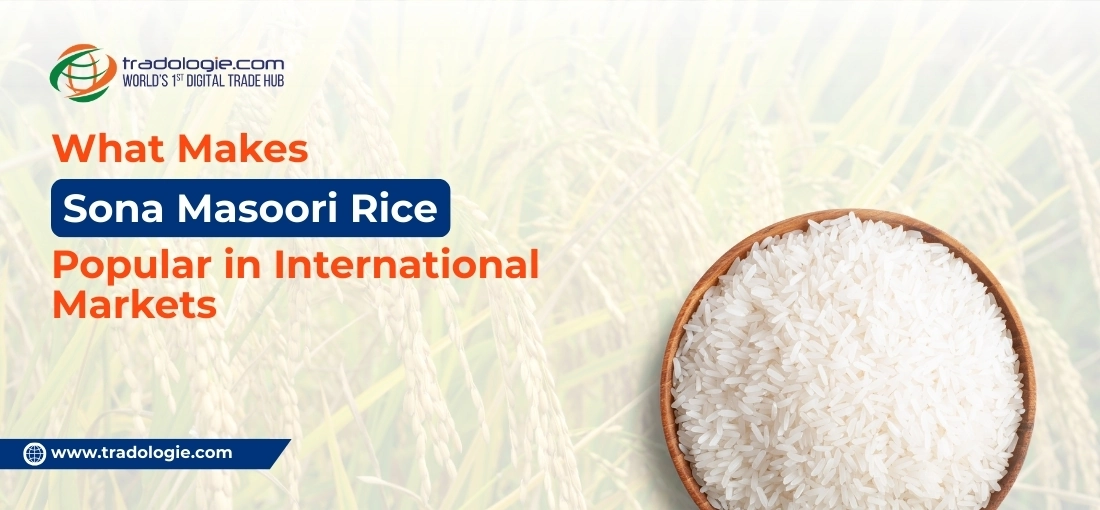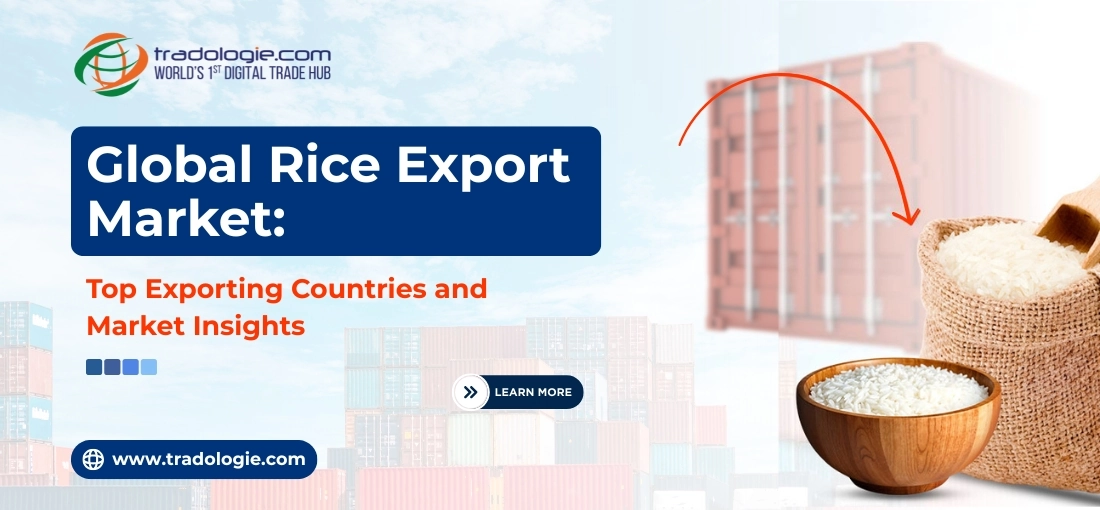What Makes Sona Masoori Rice Popular in International Markets
Sona Masoori rice has carved a distinct commercial niche in the global rice trade which is separate from both high-end aromatic varieties like Basmati and cost-efficient long-grain alternatives like IR64. This special variety of rice finds its nice relevance in international procurement cycles for institutional kitchens, ethnic food brands, and specialty grocers just like other rice varieties. It's known for its light texture, medium grain size, and low starch content.
Understanding Sona Masoori Rice: Positioning in Global Procurement
Sona Masoori is a medium-grain rice variety which is majorly cultivated in the southern Indian states of Andhra Pradesh, Telangana, and Karnataka. It does not come under the aromatic rice variety but is highly valued in the market for its lightweight profile, fragrant yet mild aroma, and soft texture that comes after cooking.
Sona Masoori strikes a perfect functional midpoint unlike Basmati, which is favoured for its long grain length and aroma, or IR64. It is widely used in preparations where flavour absorption, softness, and fast cooking are critical. This has positioned it as a preferred choice in both retail-packaged segments and bulk institutional sourcing—particularly for Asian and Middle Eastern importers.
India's Role in Global Sona Masoori Trade
India is the primary and dominant Sona Masoori rice exporter in global markets. The variety is deeply rooted in Indian agronomy and does not have large-scale commercial cultivation outside of the country. Sona Masoori rice exporters based in Hyderabad, Raichur, and Nellore form the backbone of the international supply chain, leveraging proximity to millers and state-regulated agri-mandis.
According to recent shipment data (Volza):
- The United States imported 5,753 shipments.
- The United Arab Emirates followed with 1,850 shipments.
- Qatar ranked third, with 1,556 shipments.
These three countries are the top Sona Masoori rice importers and the product is distributed through merchant exporters, wholesalers, South Asian food service operators, and private label retailers that cater to both local and diaspora populations.
Sona Masoori exports are steady despite the fact that it is not a niche and premium commodity like Basmati rice. This can be accounted for by the familiarity developed in buyers over decades.
Commercial Attributes Driving Import Demand
For bulk buyers and institutional food processors, Sona Masoori rice offers unique operational and culinary advantages:
Softness & Digestibility: The cooked grain remains soft, non-sticky, and easy to digest—ideal for daily meals and large-portion dishes.
Shorter Cooking Time: Its medium-grain structure allows for faster cooking, reducing energy usage in large-scale kitchens. Flavor-Neutral Profile: It serves as an effective base for spices, broths, and gravies—especially in curries and mixed rice dishes.
Low Glycemic Index: Health-conscious institutions and retailers increasingly favor Sona Masoori for its relatively lower GI compared to polished white rice.
These attributes make it particularly suited for South Indian cuisines, biryanis with mild bases, rice bowls, and bulk meal kits in diaspora-heavy markets such as the US and Gulf countries.
Mid-Tier Pricing and Competitive Trade Value
In the B2B trade ecosystem, Sona Masoori is positioned between commodity-grade long-grain rice and premium-grade aromatic rice. This allows importers to manage margins while offering value to both ethnic and mainstream retail consumers.
Price Benchmarking (Indicative FOB/MT Rates in 2024):
- IR64 5% Broken: Approximately $420-450/MT
- Sona Masoori Raw: Approximately $500-550/MT
- 1121 Steam Basmati:Approximately $900-950/MT
This pricing spread demonstrates Sona Masoori's value-to-quality ratio, offering better sensory and cooking attributes than basic long-grain rice at a significantly lower cost than Basmati. For distributors and merchant Sona Masoori importers, this mid-tier price point provides a commercial hedge—balancing quality expectations with margin preservation.
Trade Logistics and Export Readiness
The majority of Sona Masoori exports are shipped in 25 kg or 50 kg polypropylene sacks, or in retail-ready packaging for private label aggregation. Port operations are centered around Krishnapatnam, Chennai, and Kakinada, which offer containerized loading, fumigation, and APEDA-certified compliance processes.
Sona Masoori rice exporters typically provide:
- Phytosanitary Certification
- Lab Testing Reports for grain size, moisture, and impurities
- Custom labelling and retail packaging as per importer specifications
Due to its soft grain structure, transit time and humidity control are essential. Many exporters now integrate vacuum sealing or double-layer packaging for longer-haul shipments to North America or Europe.
Market-Specific Preferences and Growth Potential
- United States: Strong diaspora-led demand. Increasing uptake in organic and low-GI food circles. Retail chain listings via ethnic and specialty wholesalers.
- UAE and Qatar: Used extensively in catering services, hospitals, airlines, and South Indian restaurants. Demand driven by tourism, expat population, and institutional tenders.
- Singapore, Malaysia, and Australia: Emerging secondary markets, often served through transshipment hubs or consolidated containers.
As foodservice chains in the West expand South Asian menus, Sona Masoori's low-stick, mildly aromatic profile makes it an attractive candidate for menu innovation and large-batch meal solutions.
Conclusion
Sona Masoori rice has transitioned from a regional staple to a structured export-grade commodity. With India as the sole commercial source, and established demand from high-consumption markets like the United States and the UAE, the variety continues to build commercial credibility in the international rice procurement segment.
Its ability to balance quality, price, and cooking versatility gives it a unique advantage in global B2B trade—particularly where buyer specifications demand consistent texture and cost-efficiency.
Sona Masoori offers a dependable, mid-tier option backed by scalable Indian supply chains and evolving packaging innovations for global Sona Masoori rice importers, wholesalers, and institutional buyers seeking to diversify their rice portfolio beyond basmati or IR varieties.



.webp)
.webp)
